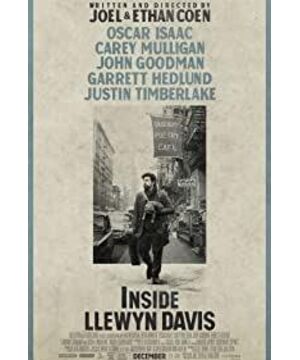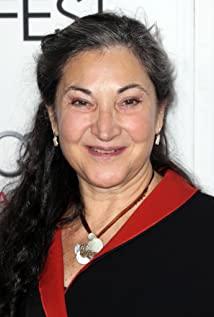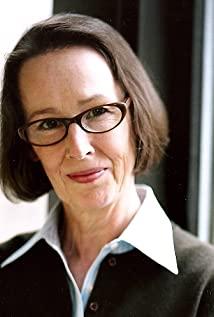In the movie "Inside Llewyn Davis" (Inside Llewyn Davis), such a song appeared three times: for the
first time, at the beginning of the movie, the protagonist Llewyn Davis played a record that he and his late companion Mike Tinkin collaborated with. The song played with two guitars, mandolin and violin.
The second time, at the dinner of the protagonist's sponsor and a professor's house, Llewyn Davis sang the song again. The professor's wife just talked to Mike's voice and touched the protagonist's bursting point, making the party unhappy.
The third time is the farewell performance of the protagonist at the end of the movie at the Gaslight Bar:
He explained what a folk song is like: "If a song is neither trendy enough nor outdated, it is a folk song." Then he played the guitar and sang it by himself, which is the song "Farewell" we heard at the beginning of the broadcast. "Fare Thee Song" (Fare Thee Song), today we are going to talk about this folk song that is at least 108 years old and has a long history.
In 1909, John Lomax, an ethnomusician who collected folk music for the Library of Congress (remember this American Wang Luobin, of course, his achievements are much higher~ He is the core figure in the origin of "American folk", we will talk about it separately in the future He) came to a construction site by the river in Houston and found a black woman named Dink in the labor shack.
Dink finished his gin and started to sing while washing his clothes. Lomax recorded this song and called it "Dink's Song" (Dink's Song).
In 1934, the song was published in the "American Ballads and Folk Songs" (American Ballads and Folk Songs) published by Lomax and Sons.
If I had, like Nora dove wings
I want to fly over the river whereabouts of the man I love
Goodbye Dear Goodbye
It was a morning under the rain
in my heart aching around
Goodbye Dear Goodbye
think to a tall big man
he moved the body is like a cannon
goodbye Dear goodbye
in a not-too-distant morning
you call my name I'll leave
goodbye dear goodbye
at the end of each word due All are Fare thee well, O Honey, fare thee well, so this song is also called "Farewell Song" or "Farewell Song".
It is a pity that Lomax's original recording has not been preserved. The earliest recording we can hear was accompanied by Josh White and sung by Libby Holman in 1942. This version is more contaminated with the jazz flavor of that era:
https://v.qq.com/x/page/t13247ofrcu.html
In the 1950s and 1960s, there was a revival of American folk music. "Father of Folk Songs" Pete Seeger often sings this song. Although it’s not “authentic” to sing by a white man with a banjo, among the remaining recordings, this 1957 live version is very interesting. Pete Seeger tells the story of the Lomax recording in its entirety. :
Https://v.qq.com/x/page/o13240syym5.html
Other major players of the folk revival movement such as Bob Dylan, Joan Baez, Odetta and Ramblin' Jack Elliott have also sung this song, and we cut one sentence into the audio. If you are messy, you can go to the NetEase cloud at the end of the article "read the original text" to listen to the complete song. This is the "cold version" of Dave Van Ronk (the prototype of the movie protagonist):
https://v.qq.com/x/page/i1324yx1sam.html
is in the liner notes of the album cover , He said these words: "Probably the best piece of singing as such I've ever done on record. I had a nasty flu when we cut this one, and my voice had gone pre-laryngitic. This had the effect of opening up an octave valve I didn't even know I had. The next day I couldn't talk, let alone sing."
In the original lyrics sung by Dink, there are three paragraphs related to "Apron" (Apron):
I wear an apron low
you came to my door
goodbye Dear goodbye
my apron dress high
you are, but my door
goodbye Dear goodbye
aprons to wear on the chin
pass by my door you will not into
goodbye Dear goodbye
From "wear apron low" to "wear apron high", it means pregnancy; and "Now my apron is up to my chin" (Now my apron is up to my chin) may refer to wiping tears with an apron. In another folk song "Careless Love" (Careless Love) of the same age, there are similar lyrics:
Once I wore my apron low
I couldn't scarcely keep you from my door
Now my apron strings don't pin
You pass my door and don't come in
So, "Song of Dink" tells a story: She fell in love with a tall man and was pregnant with his child. But men are unwilling to take responsibility for their children, ignore her and turn a blind eye to her. She cried for this, regretting not listening to her mother. But she still loved this man and couldn't bear to part with him, saying "goodbye, dear, goodbye" to him over and over again.
In "Drunk Country Folk Songs", in order to match the content of the movie, the chorused version of Oscar Isaac and Marcus Mumford (the one that first appeared in the movie and collected on the IF WE HAD WINGS record) uses two other lyrics:
bloody river was muddy and wild
bloody river of mud and wild
can not give a bloody for my unborn child
can not get my unborn child suffer
Fare thee well, my honey, fare thee well
goodbye, my love, goodbye
Sure as a bird flying high above
like a bird will fly in the sky
Life is not worth living without the one you love
without the love of human life is not worth living
Fare thee well, my honey, fare thee well
Goodbye, my love, goodbye
I want to say is, this is the ballad lyrics. It can increase or decrease impromptuly according to the scene, and can change the person's name to facilitate singing. Like Dink, every performer has his/her current version.
For example, the next live version of Jeff Buckley's rock and roll, the electric guitar improvisation added to make the song up to 11 minutes. We can hear his understanding of the song-the interpretation after adding anger and mockery:
http://music.163.com/#/song?id=18604726
This song that Dink sang was recorded in 1909, published in 1934, performed in the Jazz era, revived in the folk movement, and performed by rock stars. After 108 years, it has been spread to the present, and we can still feel that it is by the river. The mood of a black woman who washes her clothes, sings, and laments the absence of her lover. So we say that it is a ballad that is "long-lasting".
From "American Folk Song" "What kind of song is a folk song?" |Fare Thee Song (Dink's Song)"
We are a radio show! Here you can hear the female anchor’s BB:
Web Cloud Music: American Folk Ballad
http://music.163.com/#/dj?id=909100121
WeChat Official Account: American Folks (talkingfolks)
https://mp.weixin. qq.com/s/AgPkAQ-ghf9lqri8suu-xw
View more about Inside Llewyn Davis reviews











